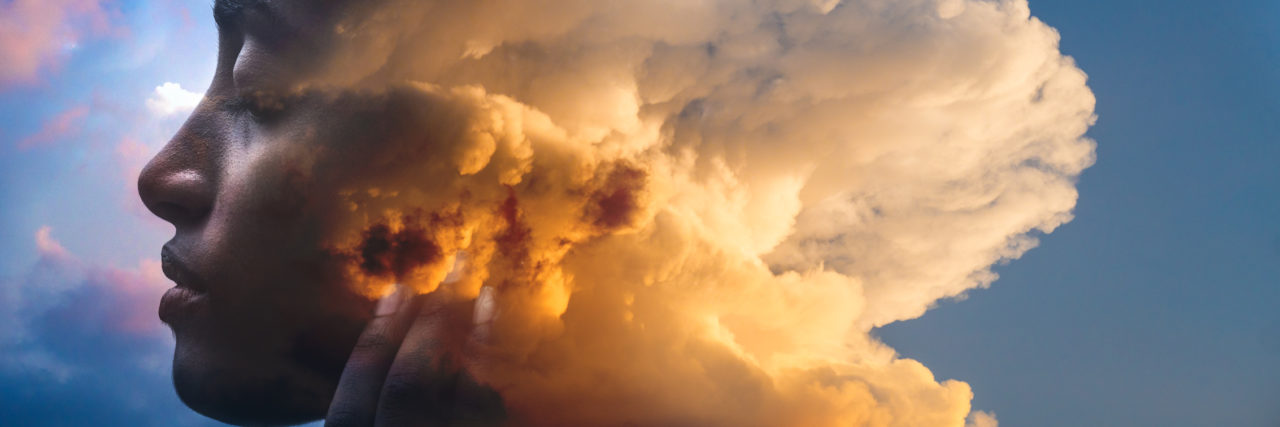I recently came across the fabulous self-acceptance movement, Stylelikeu, started by a mother-daughter duo, Elisa Goodkind and Lily Mandelbaum. In a series of mini-documentaries, a range of people are asked questions about themselves as they disrobe. It’s honest, sometimes raw, look at what makes us feel loved, accepted, powerful and beautiful.
- What is Fibromyalgia?
- What Are Common Fibromyalgia Symptoms?
It led me to think about how I could apply what I’d learned from this very disparate group to my own body – not only the imperfections brought on by age and living but also the limitations I’m experiencing because of fibromyalgia, chronic fatigue and daily headaches. How could I go forward loving and appreciating a body that I’ve come to think of as broken? How could I change my disappointment at the failings of my body and change it into appreciation?
It’s easy to fall into a day-to-day listing of how my body is failing. It’s not something that is intentional on the part of those with fibromyalgia. It’s just that our pain morphs and moves around the body in unexpected ways so I, at least, am always a little surprised. After weeks of hip and glute pain, it’ll suddenly ebb a bit and my feet will suddenly feel like I’ve pulled some weird muscles, or my hands will become very stiff and achy.
Appreciation of my body gets lost in that day-to-day reaction – that ‘what hurts today and how am I going to manage it’ merry-go-round.
I decided to really think about what this body has given despite its limitations – and when you think of it that way, it really is a bit of a champion.
I remember my fibromyalgia symptoms starting in my early teens. I never really felt well from the time I got my first migraine at 14. And yet, in this life of mine, I’ve managed to fit in an awful lot.
I became a singer. I went to university to study opera, and despite struggling with breath issues was one of the top singers in my year. I performed an incredibly difficult part and did it really well. I got to sing with a professional orchestra. It was fabulous.
I traveled. In my 20s, my husband and I traveled to Ecuador for three months and then did two shorter trips to Mexico. All three trips involved incredibly long, difficult hikes that I pushed myself to achieve. We lived in Toronto, Ontario at the time, and going for a three or four-hour walk was a typical weekend activity for us. I loved to walk. The pain would show itself when I tried to cycle, but I could walk for miles.
I gave birth to two healthy children and my brain had the creativity and my body enough energy to parent them, through all the ups and downs and trials and scares and difficulties that come along with being a parent.
As a parent, we did three more trips with more walking and my body kept up. I remember my feet really hurting in San Francisco and then I really struggled through London and Paris, but I managed. At 49, I can’t ignore my body any longer. However, in a life where most of my days are spent dividing my time between small errands and resting, where I need to hire someone to clean the house, where going out for an evening is a big deal, where a weekend trip with my husband involves driving around, not walking, I can look back and appreciate all those memories.
I can compare myself to others who continue to work, who had a better career, who are more active. But look at how much I got to do! Look at what this body achieved!
This body has worked really hard for me through all of its illnesses and gotten me to this place where I can look and say, “I like my life. I like who I am.”
Looking back, before I had a diagnosis, I know that the signs were there, that the struggles I had were an unheard warning that my body was unraveling. The societal demands to always work harder, be better, and live up to a standard that only became more and more unattainable muffled my body’s cries for gentleness and care. I didn’t know what it was that was happening to me and so the warning was lost.
So now I listen as best I can. I lie on the couch despite the kitchen filled with dirty dishes because I can feel the fingers of fatigue pulling at me. I sit down even though my task is only half done because my feet start to ache. I choose not to go on that walk because my body hurts. I choose to let my kids eat cereal for supper because the thought of cooking makes me want to weep and there must be a reason for that. I don’t leave the house because my skin hurts. And, in those weeks where I can’t get off the couch at all, that’s what I do.
The beauty of my body is in its history, its present and its future. So, rather than hate my body for these limitations, I’m really trying to appreciate it for all the strength it had to carry me through all of my adventures. I’m grateful to it today for allowing me enough energy to be present for my family. And now I care for it more tenderly, to allow it to carry me as best it can.
Getty image by Victor_Tongdee

